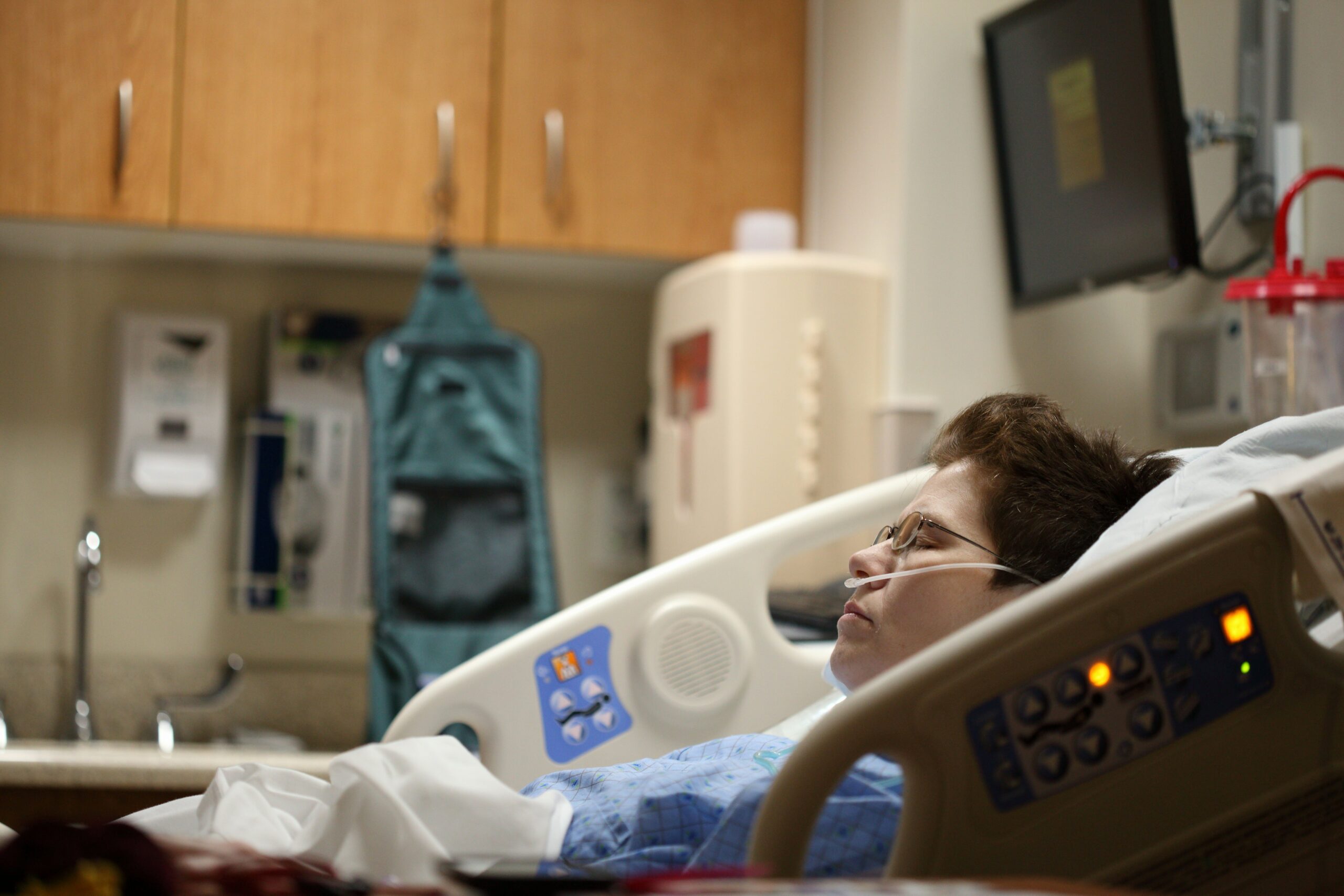Are you confused about Medicare coverage for home health care and skilled nursing facilities? Many seniors struggle to understand their benefits. This article will explain Medicare’s coverage for home care and skilled nursing services, compare the two options, and provide tips for maximizing your benefits. You’ll learn about eligibility requirements, coverage limits, and how to enroll in Medicare for these essential healthcare services. By the end, you’ll be better equipped to confidently make informed decisions about your care and navigate the Medicare system.
Key Takeaways
- Medicare covers home health care for eligible beneficiaries who meet specific criteria and need skilled care.
- Skilled nursing facility care is covered for up to 100 days following a qualifying hospital stay.
- Medicare does not cover long-term custodial care or assistance with daily living activities.
- Supplemental plans can help cover out-of-pocket costs for home health and skilled nursing facility care.
- Preventive services and planning can help maximize Medicare benefits for future health needs.
Overview of Medicare Coverage for Home Health Care

Medicare coverage for home health care encompasses various services, including therapy after surgery. This section explores eligibility requirements, types of covered services, how to access benefits, and associated costs. Understanding these aspects helps beneficiaries navigate their Medicare coverage, including options from providers like Humana, and manage potential out-of-pocket payments effectively.
Eligibility Requirements for Home Health Care Services
Medicare covers home healthcare services for eligible beneficiaries who meet specific criteria. To qualify, individuals must be under a doctor’s care, have a documented need for skilled nursing care or therapy, and be homebound. The services must be prescribed by a physician and provided by a Medicare-certified home health agency.
Covered services include physical therapy, wound care, and skilled nursing care. Medicare beneficiaries can receive these services in their homes, avoiding needing a nursing home stay. To determine eligibility and access benefits, patients should consult with their healthcare provider and Medicare representative:
Types of Home Health Services Covered by Medicare
Medicare covers a range of home health services to help beneficiaries manage their health conditions in the United States. These services include skilled nursing care, physical therapy, occupational therapy, and speech-language pathology services. Medicare Advantage plans may offer additional benefits beyond traditional Medicare coverage for individuals with chronic diseases.
Home health services include medical social services, home health aide care, and certain medical supplies. While Medicare Part D primarily covers prescription drugs, some home health services may include medication management. The cost of these services varies, but Medicare typically covers 100% of approved home health care:
How to Access Medicare Home Health Benefits
To access Medicare home health benefits, beneficiaries must first obtain a doctor’s certification of their home health care needs. This process involves a face-to-face meeting with a physician to assess the patient’s condition and determine if they qualify for home health care under Medicare. The doctor will then create a plan of care, which outlines the specific services required.
Once approved, patients can choose a Medicare-certified home health agency to provide the necessary services. These may include skilled nursing care, physical therapy, occupational therapy, and other medical treatments. Some Medicare Advantage plans offer expanded coverage for home health care, potentially including additional services not covered by Original Medicare. Beneficiaries should review their insurance options to ensure they have the most comprehensive coverage for their needs.
Costs Associated With Home Health Care Under Medicare
When provided by a Medicare-certified agency, Medicare home health coverage typically includes the total cost of medically necessary services. Patients usually do not have out-of-pocket expenses for approved home health care, including skilled nursing and therapy services. However, if a physician prescribes medical equipment, the patient may be responsible for 20% of the Medicare-approved amount.
While Medicare does not pay for long-term nursing home care, it may cover short-term stays in skilled nursing facilities following a hospital admission. Medicare covers most costs for hospice care at home, but patients may have small payments for medications and respite care. Beneficiaries need to understand these distinctions to plan for their healthcare needs effectively.
Understanding Skilled Nursing Facility Coverage Under Medicare

Medicare coverage for skilled nursing facilities (SNFs) provides essential care for eligible beneficiaries. This section examines the criteria for coverage, services offered, duration limits, and associated costs. Understanding these aspects helps patients navigate SNF care under Medicare, including coverage options from providers like Kaiser Senior Advantage, and manage potential out-of-pocket expenses effectively.
Criteria for Medicare Coverage of Skilled Nursing Facilities
Beneficiaries Medicare covers skilled nursing facility care for people who require specialized services following a qualifying hospital stay. To be eligible, patients must have spent at least three consecutive days as inpatients in a hospital and need daily skilled care, such as intravenous or physical therapy. The care must be related to the condition treated during the hospital stay and prescribed by a physician.
Medicare home health care agencies often coordinate with skilled nursing facilities to ensure continuity of care. While Medicare does not typically cover long-term drug treatments in these facilities, it does pay for home health services that may include medication management and specific therapies. As part of the overall treatment plan, speech-language pathology services are also covered when deemed medically necessary.
Services Provided in Skilled Nursing Facilities Covered by Medicare
Medicare covers a range of skilled services in nursing facilities, including inpatient care for rehabilitation after a hospital stay. These services encompass physical therapy, occupational therapy, and speech-language pathology to help patients regain independence. Skilled nursing care, wound care, and medication management are also provided to ensure proper recovery and health maintenance.
While Original Medicare covers these services, some Medicare Advantage plans may offer additional benefits for skilled nursing facility care. Patients should verify their coverage options, as Medicare may pay for home care services after discharge from a skilled nursing facility. This continuity of care ensures patients receive appropriate support when returning home.
Duration and Limits of Skilled Nursing Facility Coverage
Medicare nursing home coverage for skilled nursing facilities has specific duration limits. Medicare typically covers 100 days of care in a skilled nursing facility per benefit period. The first 20 days are fully covered, while days 21-100 require a daily coinsurance payment from the patient.
After the 100-day limit, patients become responsible for all costs unless they have additional health insurance coverage. Healthcare providers must regularly assess patients to ensure they still require skilled care, as Medicare may end coverage earlier if the patient no longer needs this level of care. Patients and their families should work closely with their healthcare providers to understand these limits and plan accordingly.
Costs and Copayments for Skilled Nursing Facility Care
Medicare beneficiaries face varying costs for skilled nursing facility care. While the first 20 days are fully covered, patients are responsible for a daily coinsurance payment from days 21 to 100. Some individuals choose to purchase a Medigap policy to help cover these out-of-pocket expenses and extend their Medicare home health care benefits.
After the 100-day limit, patients become responsible for all costs unless they have additional coverage. Caregivers should know that while Medicare covers necessary medical supplies and medicine, it does not pay for personal care services if skilled care is no longer required. Understanding these costs helps beneficiaries and their families plan effectively for potential long-term care needs.
Comparing Home Health Care and Skilled Nursing Facility Benefits

Medicare coverage for home health care and skilled nursing facilities offers different benefits to meet varying health needs. This section compares these services, exploring care level determination, transitions between settings, coordination of services, and impacts on caregivers. Understanding these aspects helps beneficiaries navigate their options for health care, including support for injuries or disabilities, and determine if Medicare will pay for home health care or if a nurse practitioner’s services are covered.
Determining the Appropriate Level of Care for Your Needs
Determining the appropriate level of care involves assessing an individual’s health status and daily living needs. For those with dementia or difficulties performing activities of daily living, home health care might be suitable if they can remain safely at home with support. Medicare will pay for home health care when it’s deemed medically necessary and prescribed by a doctor.
Skilled nursing facilities offer more intensive care for those requiring round-the-clock medical attention. When considering options, patients should evaluate their need for durable medical equipment and potential out-of-pocket costs, including deductibles. The decision between home health and skilled nursing care depends on the level of medical support required:
- Home Health Care: Suitable for those needing intermittent skilled care
- Skilled Nursing Facility: Appropriate for individuals requiring constant medical supervision
- Assisted Living: An option for those needing help with daily activities but not intensive medical care
Transitioning Between Home Health Care and Skilled Nursing Facilities
Patients often transition between home health care and skilled nursing facilities based on their changing medical needs. Medicare covers both services, but the transition process requires careful coordination among healthcare providers. When patients’ condition improves, they may move from a skilled nursing facility to home health care, where they can receive ongoing support in a familiar environment.
Conversely, if a patient’s health declines while receiving home health care, they may need to transfer to a skilled nursing facility for more intensive treatment. This transition typically involves reassessment by a physician and may require a qualifying hospital stay for Medicare coverage. The process of transitioning includes:
- Physician evaluation of patient’s health status
- Coordination between home health agencies and skilled nursing facilities
- Review of Medicare coverage eligibility for the new care setting
- Arrangement of necessary medical equipment and transportation
Coordination of Care Services Under Medicare
Medicare coordinates care services between home health agencies and skilled nursing facilities to ensure patients receive appropriate and consistent care. This coordination involves regular communication among healthcare providers, including physicians, nurses, and therapists, to monitor patient progress and adjust treatment plans. Medicare requires detailed documentation of services to maintain coverage eligibility and ensure quality care.
Effective coordination under Medicare also includes managing transitions between care settings. When patients move from home health care to a skilled nursing facility or vice versa, Medicare facilitates the transfer of medical records and care plans. This seamless coordination helps prevent gaps in treatment and ensures that patients receive the most appropriate level of care for their current health status.
Impact on Caregivers and Family Members
Caregivers and family members are crucial in supporting patients who receive home health care or skilled nursing facility services under Medicare. Home health care often places more responsibility on caregivers, requiring them to assist with daily tasks and coordinate care. In contrast, skilled nursing facilities provide round-the-clock professional care, which can alleviate some caregiver stress.
Choosing between home health care and skilled nursing facilities impacts caregivers’ time, energy, and financial resources. While home health care allows patients to remain in familiar surroundings, it may require caregivers to take on more responsibilities. Skilled nursing facilities offer comprehensive care but may involve higher costs and emotional challenges for families. Caregivers should consider their capacity to provide support and the patient’s needs when making decisions:
Enrolling in Medicare for Health Care Services

Enrolling in Medicare for home health care and skilled nursing facility services involves understanding the enrollment process, coverage options, and communication with healthcare providers. This section outlines the steps to enroll in Medicare home health care, explains skilled nursing facility coverage enrollment, clarifies the roles of Medicare Parts A and B, and provides guidance on communicating with healthcare providers to ensure proper care and coverage.
Steps to Enroll in Medicare Home Health Care
Enrolling in Medicare home health care begins with obtaining a doctor’s certification of need for these services. The patient must meet eligibility criteria, including being homebound and requiring skilled nursing care or therapy. Once certified, the doctor will develop a care plan outlining the necessary services.
The next step involves choosing a Medicare-certified home health agency to provide care. Patients should review their options and select an agency that meets their needs. After choosing an agency, the patient or their representative must sign a consent form to receive services. The home health agency will then coordinate with Medicare to ensure proper coverage and billing:
- Obtain doctor’s certification of need
- Meet eligibility criteria (homebound, requiring skilled care)
- Choose a Medicare-certified home health agency
- Sign a consent form for services
- Agency coordinates with Medicare for coverage and billing
Enrolling in Skilled Nursing Facility Coverage
Enrolling in Medicare skilled nursing facility coverage typically occurs after a qualifying hospital stay. Patients must have spent at least three consecutive days as an inpatient in a hospital and require daily skilled care. The hospital discharge planner or social worker usually initiates the process by coordinating with the chosen skilled nursing facility.
Once admitted to the skilled nursing facility, Medicare coverage begins automatically for eligible patients. The facility will handle the necessary paperwork and billing with Medicare. Patients should be aware that while Medicare covers the first 20 days, they may be responsible for a daily coinsurance payment from day 21 to 100.
Understanding the Role of Medicare Parts A and B
Medicare Part A covers inpatient hospital stays, skilled nursing facility care, and home health care services. For home health care, Part A typically covers nursing care, physical therapy, and medical social services when they are medically necessary and provided by a Medicare-certified agency. Part A also covers the first 100 days of skilled nursing facility care following a qualifying hospital stay.
Medicare Part B covers outpatient care, including some home health services not covered by Part A. This includes medical equipment, occupational therapy, and speech-language pathology services. Part B also covers medical supplies and equipment used during a stay in a skilled nursing facility. Beneficiaries should enroll in both Part A and Part B to ensure comprehensive coverage for home health care and skilled nursing facility services.
Communicating With Health Care Providers
Effective communication with healthcare providers is essential when enrolling in Medicare for home health care or skilled nursing facility services. Patients should discuss their health needs, care preferences, and any concerns with their doctors to ensure appropriate services are prescribed and covered by Medicare. Clear communication helps healthcare providers develop accurate care plans and determine the most suitable level of care.
Beneficiaries should maintain open lines of communication with their healthcare team throughout their care journey. This includes informing providers of any changes in health status, discussing the effectiveness of current treatments, and asking questions about Medicare coverage for specific services. Regular communication ensures that care plans align with patients’ needs and helps prevent coverage issues.
Common Questions About Medicare Coverage

This section addresses common questions about Medicare coverage for home health care and skilled nursing facilities. It explores Medicare’s long-term care coverage, services not included, the impact of supplemental plans, and additional information resources. Understanding these aspects helps beneficiaries navigate their Medicare coverage effectively.
Does Medicare Cover Long-Term Care?
Medicare does not cover long-term care in most situations. Long-term care refers to non-medical assistance with daily living activities, such as bathing, dressing, and eating, which Medicare generally does not cover. However, Medicare does offer limited coverage for short-term skilled nursing care and home health services under specific conditions.
For individuals requiring long-term care, alternative options may include purchasing long-term care insurance, utilizing Medicaid if eligible, or paying out-of-pocket. It’s important for beneficiaries to understand these limitations and plan accordingly for potential long-term care needs:
What Is Not Covered Under Medicare?
Medicare does not cover several types of care and services that beneficiaries should be aware of. These include routine dental care, eye exams for prescription glasses, hearing aids, and most cosmetic surgeries. Additionally, Medicare generally does not cover long-term custodial care, such as assistance with daily living activities in nursing homes or assisted living facilities.
Other services not covered by Medicare include acupuncture (except for chronic low back pain), routine foot care, and most care received outside the United States. Beneficiaries should also note that Medicare does not cover prescription drugs under Original Medicare (Parts A and B), although this coverage is available through Medicare Part D or some Medicare Advantage plans:
How Do Supplemental Plans Affect Coverage?
Supplemental plans like Medigap policies can significantly affect Medicare coverage for home health care and skilled nursing facilities. These plans help fill the gaps in Original Medicare by covering out-of-pocket costs like copayments, coinsurance, and deductibles. Some Medigap plans for skilled nursing facility care cover the daily coinsurance for days 21-100, reducing the beneficiary’s financial burden.
Medicare Advantage plans, another type of supplemental coverage, may offer additional benefits for home health care and skilled nursing services. These plans often include coverage for services not typically covered by Original Medicare, such as transportation to medical appointments or meal delivery. The extent of coverage varies by plan, so beneficiaries should carefully review their options:
Where to Find More Information and Assistance
Beneficiaries seeking more information about Medicare coverage for home health care and skilled nursing facilities can access various resources. The official Medicare website (Medicare.gov) provides comprehensive details on coverage, eligibility, and costs. Additionally, the State Health Insurance Assistance Program (SHIP) offers free counseling and assistance to Medicare beneficiaries in understanding their options.
Individuals can contact their local Social Security office or the Medicare helpline at 1-800-MEDICARE for personalized guidance. These resources can provide specific information about coverage in different states and help beneficiaries navigate the complexities of Medicare benefits. The following table outlines key resources for Medicare information:
Tips for Maximizing Your Medicare Benefits

Maximizing Medicare benefits for home health care and skilled nursing facilities requires careful planning and understanding. This section offers practical tips on tracking covered services, seeking expert advice, planning for future health needs, and utilizing preventive services. These strategies help beneficiaries make the most of their Medicare coverage and manage their health care effectively.
Keeping Track of Covered Services and Expenses
Keeping accurate records of covered services and expenses is crucial for Medicare beneficiaries receiving home health care or skilled nursing facility services. Patients should maintain a log of all medical appointments, treatments, and medications, including dates, provider names, and associated costs. This detailed record helps track progress towards meeting deductibles and out-of-pocket maximums, ensuring beneficiaries can fully utilize their Medicare coverage.
Regularly reviewing Medicare Summary Notices (MSNs) and Explanation of Benefits (EOBs) statements is essential for identifying billing errors or unauthorized charges. Beneficiaries should compare these documents with their records to ensure accuracy and promptly report any discrepancies to Medicare. By staying vigilant and organized, patients can maximize their benefits and avoid unexpected expenses related to home health care and skilled nursing facility services.
Seeking Assistance From Medicare Advisors
Medicare advisors assist beneficiaries in navigating the complexities of home health care and skilled nursing facility coverage. These experts provide personalized guidance on eligibility requirements, coverage limits, and potential out-of-pocket costs. By consulting with a Medicare advisor, beneficiaries can understand their options and make informed decisions about their healthcare services.
State Health Insurance Assistance Programs (SHIPs) provide free, unbiased counseling to Medicare beneficiaries. These programs offer one-on-one support to help individuals understand their coverage, compare plans, and resolve issues with claims or billing. Utilizing SHIP services can help beneficiaries maximize their Medicare benefits and avoid costly mistakes when accessing home health care or skilled nursing facility services.
Planning Ahead for Health Care Needs
Medicare beneficiaries must plan for future healthcare needs to maximize their coverage for home healthcare and skilled nursing facilities. Individuals should assess their current health status and consider potential future needs, such as chronic conditions that may require ongoing care. This proactive approach allows beneficiaries to choose the most appropriate Medicare plans and supplemental coverage to meet their anticipated needs.
Beneficiaries should also consider creating an advance directive and designating a healthcare proxy. These legal documents ensure that their wishes regarding medical treatment are respected if they cannot decide for themselves. Planning also involves researching local home health agencies and skilled nursing facilities to identify preferred providers that accept Medicare:
- Assess current and potential future health needs
- Choose appropriate Medicare plans and supplemental coverage
- Create advance directives and designate a healthcare proxy
- Research local Medicare-certified providers
Using Preventive Services to Stay Healthy
Medicare beneficiaries can maximize their health benefits by utilizing preventive services covered under their plans. These services, which include annual wellness visits, screenings, and immunizations, are designed to detect health issues early and prevent complications that may require home health care or skilled nursing facility stays. By taking advantage of these services, beneficiaries can maintain their health and potentially reduce the need for more intensive care in the future.
Regular use of preventive services can help Medicare beneficiaries stay healthier and more independent, potentially reducing the likelihood of needing extensive home health care or skilled nursing facility services. Beneficiaries should consult their healthcare providers to create a personalized preventive care plan addressing their health risks and needs. This proactive approach to health management can lead to better health outcomes and more effective use of Medicare benefits over time.
Conclusion
Understanding Medicare coverage for home health care and skilled nursing facilities is crucial for beneficiaries to access necessary care while managing costs effectively. By grasping eligibility requirements, covered services, and enrollment processes, individuals can make informed decisions about their healthcare options and maximize their Medicare benefits. Staying informed about coverage limits, coordinating care services, and utilizing preventive measures can help beneficiaries maintain their health and independence while minimizing out-of-pocket expenses. Ultimately, a comprehensive understanding of Medicare’s provisions for home health care and skilled nursing facilities empowers beneficiaries to confidently navigate their healthcare journey and ensure appropriate care in the most suitable setting.

